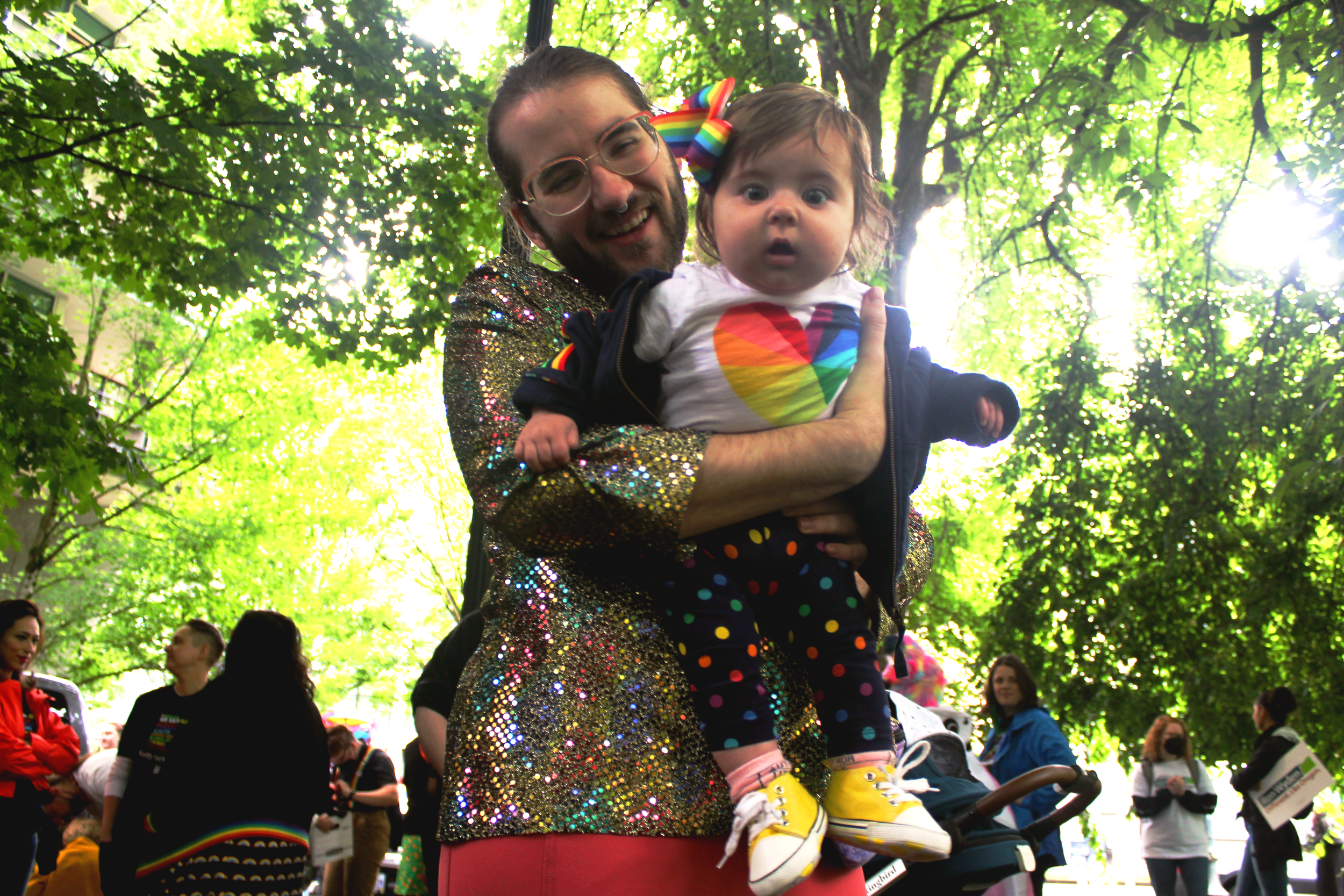
Second Parent Adoption
The most common way that non-biological LGBTQ2SIA+ parents obtain nationally recognized parental rights is through a court process often referred to as “second parent adoption.”
This process petitions the court to issue a Judgment of Adoption, which names the non-biological parent as a legal parent of the child while retaining the parental rights of their spouse or domestic partner.
Because Judgments issued from any court within the U.S. must be recognized in all 50 states, second parent adoption is the most ironclad way to protect a non-biological parent’s rights and to ensure recognition nationwide.
Is my current second parent adoption under threat?
The Trump administration took office on January 20, 2017 and since that time, fear and concern continue to reverberate within the LGBTQ2SIA+ community. Many wonder what the placement of new conservative justices to the Supreme Court and other federal courts will mean for LGBTQ2SIA+ rights, including parental rights and our hard-won progress. There’s concern Trump will erode protections, even those supplied by a court-issued Judgment of Adoption.
Fortunately, the ability of LGBTQ2SIA+ Oregonians to get second parent adoptions significantly predates the landmark 2015 Obergefell v. Hodges ruling regarding same-sex marriage.
Because adoption and parental rights are determined at the state level by state law, and Oregon is one of several states that allow second parent adoptions by married or unmarried same-sex couples, any reversal of the Obergefell v. Hodges ruling would not end the ability of Oregonians to pursue and obtain second parent adoptions. And remember, any Judgment of Adoption issued in an Oregon court must be recognized in every other state as part of United States Constitutional law.
Therefore, second parent adoptions granted in Oregon will establish parental rights in all 50 states regardless of any change in federal law. However, although it is very unlikely that Oregon’s laws will change to the detriment of LGBTQ2SIA+ families, it is crucial that the LGBTQ2SIA+ community remains vigilant in this political climate where anti-LGBTQ2SIA+ forces are loudly and openly working to erode LGBTQ2SIA+ rights in every part of the country.
Should I get a second parent adoption now?
For several reasons, second parent adoptions are strongly advised even when state law deems a non-biological parent a legal parent in that state due to their marriage to the biological parent.
First, there is significant variation among state law in the degree that each state recognizes (or does not recognize) the parental rights of a non-biological parent whose child was conceived with the help of a sperm donor. Until every states’ laws give full recognition to same-sex families and to the parental rights of non-biological LGBTQ2SIA+ parents, second parent adoption is the absolute best way to safeguard the parent-child relationship between a non-biological parent and their child.
Second, even if both parents are listed on a child’s birth certificate at birth, it is very important to note that birth certificates are only evidence of parentage and that they do not actually confer legal parental status. It is foreseeable, and has occurred in the past, that the parentage of a child born to a married couple and conceived using assisted reproduction could be challenged in court. Obtaining a second parent adoption unequivocally confers legal parental status to the non-biological parent nationwide and protects against potential costly, lengthy, and heart-wrenching litigation.
Third, if a couple has a child with the help of a known sperm donor, a second parent adoption is especially important to definitively establish that the legal parents are the same-sex couple and that the donor has no legal parental status whatsoever. Further, because many couples who use known donors perform the insemination at home rather than at a physician’s office with the help of a physician, without a second parent adoption, couples could end up facing a challenge to their parentage as a court tries to evaluate the evidence and witness testimony and decide whether the donor was truly a donor pursuant to Oregon law.
Finally, having a Judgment of Adoption offers more security and protection for LGBTQ2SIA+ families outside U.S. borders. Because most countries do not recognize same-sex marriage, it is likely that those same countries would not recognize any parentage established by that marriage. A Judgment of Adoption establishes a relationship directly between the non-biological parent and the child, allowing recognition of the parental status of the non-biological parent without having to give recognition to a same-sex relationship which may be unlawful in that country.
Transgender parents can become legal parents in Oregon in the same ways that other LGBTQ2SIA+ parents can: by birth, by adoption, or by through a marriage or domestic partnership to the biological parent.. For the same reasons as other LGBTQ2SIA+ parents, transgender parents who are not the biological parents of their child should seek a second parent adoption shortly after the birth to protect their parentage nationwide and internationally.
What if a child already has two legal parents?
In some situations – for example, if a step-parent would like to adopt a child who already has two legal parents – one of the parents may relinquish their parental rights to grant the second parent adoption. This issue also impacts known donors to couples when the donor has not terminated their parental rights. It would be necessary to obtain written consent of that person with parental rights to the adoption or give them the opportunity to object the adoption in court.
Is third parent adoption an option?
In some families, a child may have three parents that live, share, and work together as a cohesive unit to raise and nurture the child. All three parents may wish to provide legal protection for the non-biological parent and safeguard the relationship between that parent and the child.
Although it’s not nearly as common as second parent adoption, it is possible, in certain circumstances, for the two legal parents to retain their parental rights and consent to the adoption by the third parent. Such a third parent adoption in Oregon is rare, but has been successfully achieved in at least one county.
Additional Resources
Lambda Legal suggests that LGBTQ2SIA+ parents ensure their child’s Social Security number record lists both parents as the child’s legal parents, and obtaining a passport for each child that lists both parents as the child’s legal parents.
Additional resources include:
National Center or Lesbian Rights: Legal Recognition of LGBT Families
Lambda Legal Post Election FAQ
OGALLA & Lambda Legal Legal Rights of Registered Domestic Partnerships in Oregon
NCTE and ACLU: Protecting the Rights of Transgender Parents and their Children
Legal resources: ogalla.org
